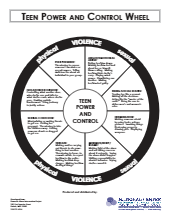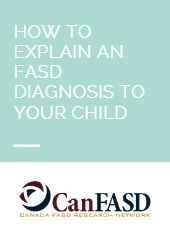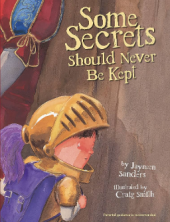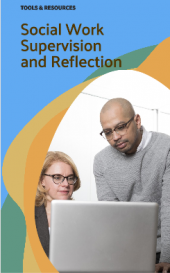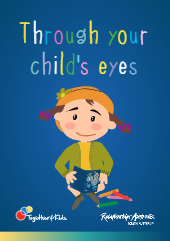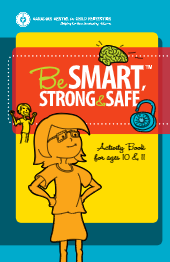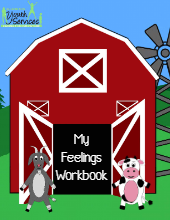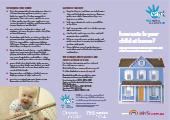Teen power and control wheel
The ‘Teen power and control wheel’ illustrates different forms of abuse or unhealthy behavior that can occur in teen relationships. It divides these behaviors into several categories: Physical violence –…
How to explain an FASD diagnosis to your child (booklet)
This resource is an 8-page booklet providing tips for caregivers on explaining a diagnosis of Fetal Alcohol Spectrum Disorder (FASD) to their child. It was created by CanFASD, a Canadian…
What to do when you worry too much: A kids guide to overcoming anxiety
This is a book adapted to assist children in managing anxiety. The book explains that worries are like seeds that can grow if you pay too much attention to them….
Social Stories for Autism & Learning Difficulties
BEHAVIOURAL CHALLENGES Chewing Picking my nose Screaming BODY Being naked/private parts Masturbation (boys) Puberty (boys) What are private parts? BOUNDARIES Hugging Hugs Keeping my clothes on (boys) Keeping my clothes…
Some Secrets Should Never Be Kept Storybook
“Some Secrets Should Never Be Kept” is a key resource designed to help kids and the adults in their lives discuss body safety. Focused on the critical concept of safe…
Have You Filled A Bucket Today? A Guide to Daily Happiness for Kids Book
“Have You Filled a Bucket Today? A Guide to Daily Happiness for Kids” by Carol McCloud, with illustrations by David Messing, is a children’s book with a strong message about…
Social Work Supervision and Reflection Tools & Resources
Exploring Identity, Power, Values and Ethics Social GGRRAAAACCEEESSSS This tool provides a framework called Social GGRRAAAACCEEESSSS for reflecting on different aspects of personal identity as a person and as an…
Domestic abuse through your child’s eyes: Parenting guide
This resource is a guide for parents who have experienced domestic abuse to help them understand the impacts on their children and how to support them. It emphasizes that even…
Foetal Alcohol Spectrum Disorder: Information Sheets
The resource is a set of 10 information sheets which aims to provide practitioners with knowledge and skills to support children who may have Foetal Alcohol Spectrum Disorder (FASD). The…
Be Smart, Strong & Safe: Activity Book for ages 10 & 11
This is an activity book developed by The Canadian Centre for Child Protection designed to teach 10-11 year olds about personal safety and healthy boundaries. It uses engaging exercises to…
Female Genital Mutilation (FGM): The Facts Guide
This is an informational booklet that provides key facts about female genital mutilation (FGM) and guidance on the issue. It clearly explains what FGM is, the types of procedures involved,…
Graded Care Profile 2 – Quality of Care/Neglect Assessment Tool & Guidance
The Graded Care Profile 2 (GCP2) is an updated version of the original Graded Care Profile tool, designed to assess the quality of care provided to an individual child over…
My Feelings Workbook for Children
This is a 15-page printable workbook to help children understand and manage their emotions, particularly anxiety and worry. It is designed to be completed by a child with guidance from…
Emotions Activities Workbook
This 9-page resource from Partnership for Children provides a diverse collection of printable activities to help children ages 5-11 explore emotions. It aims to build emotional literacy and resilience by…
Young person’s guide to understanding and coping with emotions
“These Things Called Emotions: A Young Person’s Guide to Understanding and Coping with Emotions” is a powerful and empowering resource for young individuals seeking to embrace their emotions with confidence…
One Minute Guide to Child Trauma
This short 3-page guide provides a concise overview of childhood trauma, its impacts, and tips for supporting traumatised children. It explains why understanding trauma is important since many children involved…
Free ‘Stopping the Pain: A Workbook for Teens Who Self-Injure’
“Stopping the Pain: A Workbook for Teens Who Self-Injure” is a valuable resource designed to help teenagers struggling with self-injury. Divided into sections, it offers a series of activities that…
Child Sexual Exploitation Educational Videos
The Story of Jay This short animated video, just a minute and a half long, shares a made-up story about a young person who faces sexual exploitation by someone named…
Young person’s guide to understanding and coping with low mood
“A Young Person’s Guide to Understanding and Coping with Low Mood” is an empowering and informative workbook designed to help teens navigate the complexities of low mood and develop effective…

Managing self-harm: A young person’s guide to understanding and coping with self-harm
Managing self-harm: A young person’s guide to understanding and coping with self-harm is a comprehensive workbook designed to support individuals who have engaged in self-harming behaviors as a way to…
Building Skills That Strengthen Resilience Adult/Young People’s Guide
The Bouncing Back Workbook: Building Skills That Strengthen Resilience Adult/Young People’s Guide is a comprehensive and practical workbook designed to help individuals develop resilience and bounce back from life’s challenges….
The Grit Guide for Teens: A Workbook to Help You Build Perseverance, Self-Control & a Growth Mindset
“The Grit Guide for Teens” is a valuable workbook designed to help teenagers build essential character traits such as perseverance, self-control, and a growth mindset. The guide introduces the concept…
How safe is your child at home? Home safety guide for parents
The “Home Safety Guide for Parents” is a useful resource designed to help parents and caregivers create a safe and secure environment for children under the age of five within…
How to tell if your abusive partner is changing guide
The “How to Tell If Your Abusive Partner Is Changing Guide” is a comprehensive resource that aims to help individuals in abusive relationships identify signs of genuine change in their…
Your Kids and Alcohol: A guide for parents
“Your Kids and Alcohol: A Guide for Parents” is a comprehensive resource that offers guidance and information on underage drinking for parents. The guide covers various topics, including why children…
Understanding Bedwetting (Enuresis): A guide for parents/carers
“Understanding Bedwetting (Enuresis): A Guide for Parents/Carers” is a helpful resource that provides information and guidance regarding bedwetting in children. It aims to support parents and caregivers in understanding the…
Resource guide for parents of a child with an eating disorder
‘Survive to Thrive Guide: A Resource for Parents of a Child with an Eating Disorder’ is a comprehensive and supportive booklet written by parents who have personal experience with a…
Teach Kids About Autism: Kit for Kids Engaging Programme
The “Teach Kids About Autism: Kit for Kids” is an engaging program designed to educate elementary and middle school students about autism and promote inclusivity in the classroom. The kit…
All Emotions are OK: Booklet for Children
“All Emotions are OK” is a heartfelt booklet designed for children and their families to explore and embrace a wide range of emotions. The booklet is divided into three sections:…
How to beat anxiety: Self help workbook for children
“How to Beat Anxiety: Self-Help Workbook for Children” is a comprehensive resource designed to assist children in managing and overcoming anxiety. The workbook is divided into six weekly sections, each…
